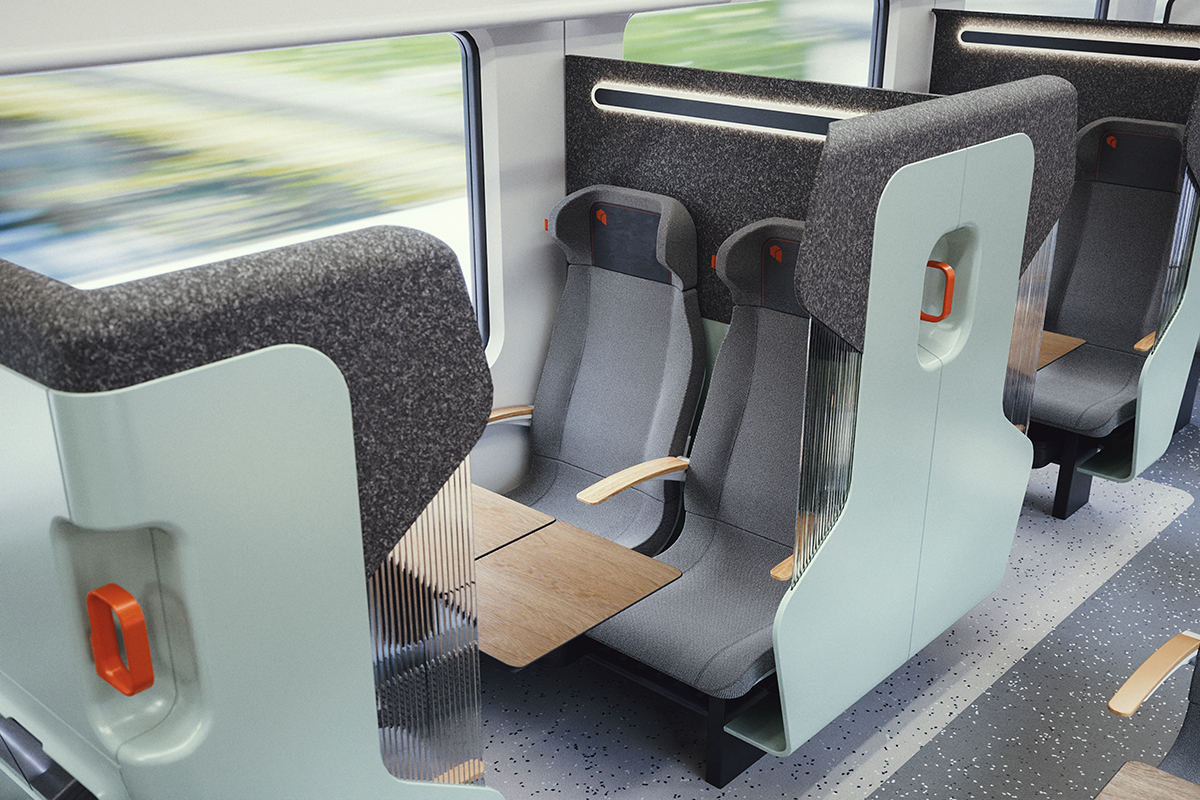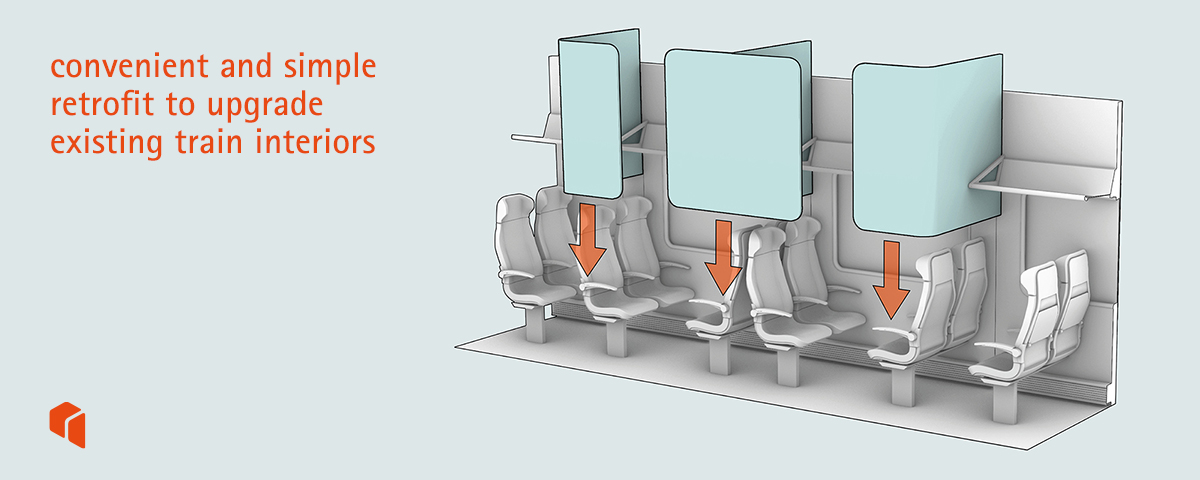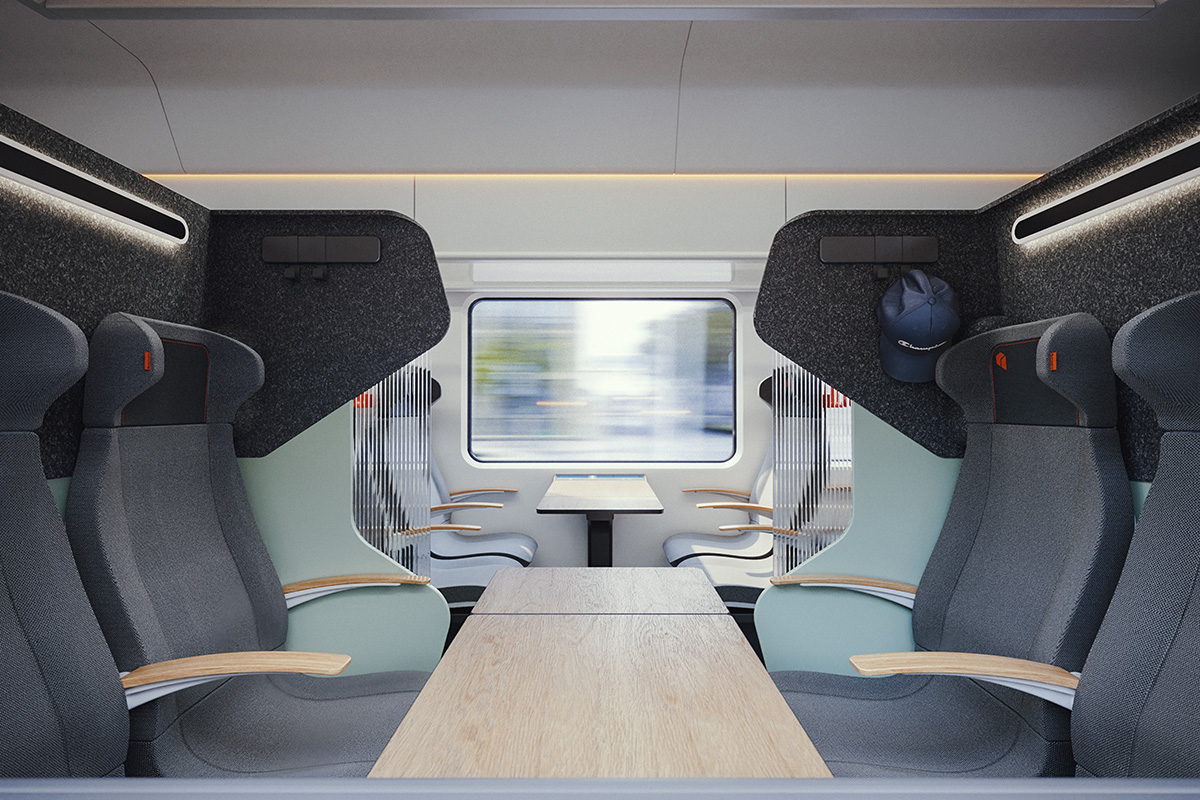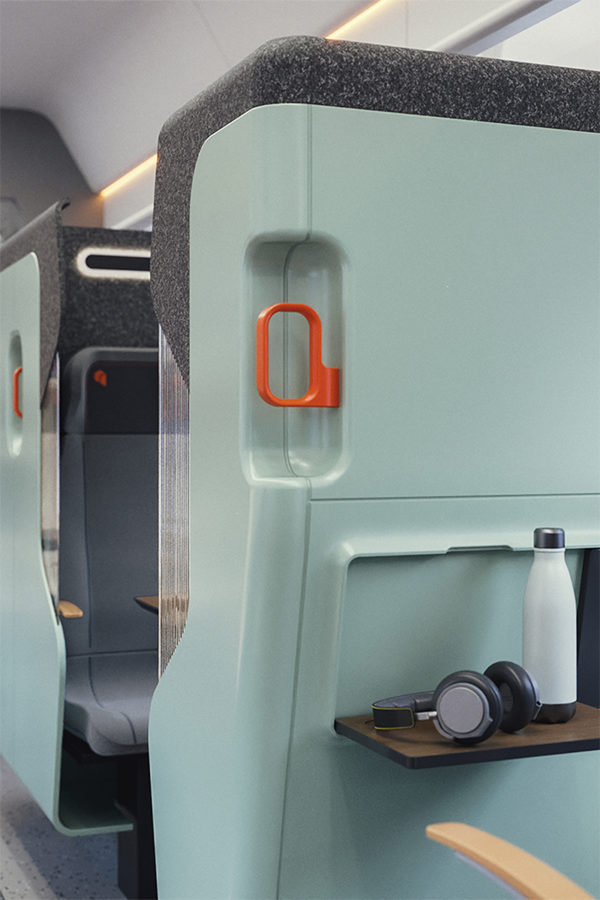
cocoon it – a collaboration between
Cideon Engineering | TAPS | quinteza | büro+staubach
Pleasant and positive travel experiences, are not only defined by on-time departure and arrival. Especially in public transport, the comfort and services offered on board the vehicles are factors that significantly determine the perceived quality of travel. Today's passengers expect their basic needs such as privacy, sleeping, working, socializing and eating to be met for the duration of the journey.
Contemporary interior design approaches therefore aim for spatial differentiation with dedicated areas that address different and constantly evolving individual passenger needs. However, the capabilities for specific individual areas in the passenger compartment are inherently limited in size and quantity and a precise mapping of service offering and demand seems unrealistic. Differentiated services to accommodate a varying range of passenger needs can only be offered to a limited extent economically, operationally and in terms of installation – especially considering an expected doubling of ridership by 2030.
In contrast to these differentiated solutions, the engineering company CE Cideon Engineering, industrial design studio büro+staubach and seat manufacturer TAPS have collaborated to develop an additive and flexible passenger cabin.
The fundamental approach of this concept is to partially and sustainably retrofit cabin elements to existing interior components, such as the existing passenger seats, in the most minimally invasive way possible. Thereby, a more private and noise optimized travel environment is created, suitable for different purposes such as working, privately socializing, eating, sleeping, etc.
On the road to climate neutrality, this concepts maximizes the utilization of sustainable, vegan, recyclable and carbon-neutral materials with the aim of enabling a circular value chain. Ultimately, reducing the use of finite resources will not only impact all stages of the vehicle life cycle, but also result in economic sustainability.
Contemporary interior design approaches therefore aim for spatial differentiation with dedicated areas that address different and constantly evolving individual passenger needs. However, the capabilities for specific individual areas in the passenger compartment are inherently limited in size and quantity and a precise mapping of service offering and demand seems unrealistic. Differentiated services to accommodate a varying range of passenger needs can only be offered to a limited extent economically, operationally and in terms of installation – especially considering an expected doubling of ridership by 2030.
In contrast to these differentiated solutions, the engineering company CE Cideon Engineering, industrial design studio büro+staubach and seat manufacturer TAPS have collaborated to develop an additive and flexible passenger cabin.
The fundamental approach of this concept is to partially and sustainably retrofit cabin elements to existing interior components, such as the existing passenger seats, in the most minimally invasive way possible. Thereby, a more private and noise optimized travel environment is created, suitable for different purposes such as working, privately socializing, eating, sleeping, etc.
On the road to climate neutrality, this concepts maximizes the utilization of sustainable, vegan, recyclable and carbon-neutral materials with the aim of enabling a circular value chain. Ultimately, reducing the use of finite resources will not only impact all stages of the vehicle life cycle, but also result in economic sustainability.





